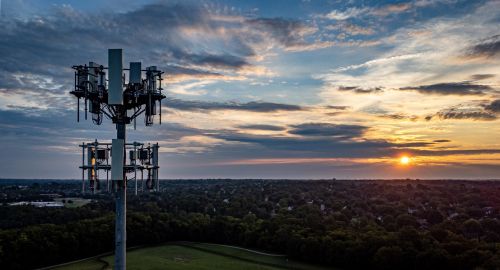What is a Geofence Warrant and Why is it Important?

Where technology has evolved, individuals are not just traveling with everything at the push of a button, but they are also carrying the ability to track their location with them. When a person carries a cell phone, it pings off the different cell phone towers that it accesses as it moves. So, with some expertise and law enforcement trained into reviewing these records, police can literally track a suspect’s movements from the moment they left their house. Generally, Courts have allowed law enforcement to use search warrants to search a particular phone number/device to track such movements. But what happens when law enforcement is starting from scratch and trying to piece together who might be in a given area at a particular time and then work backwards from that? That is a ‘geofence warrant’ and it is new area of law as it pertains to a person’s Fourth Amendment rights.
What is a Geofence Warrant?
Let’s start with the basics. A geofence warrant is a specialized type of search warrant that allows law enforcement to obtain location data from companies about the devices that were present within a specific geographic area during a certain period of time. Rather than targeting an individual suspect’s data, these warrants cast a wide net by collecting information about all devices that were within a specified area. Imagine a halo surrounding a cell phone tower. A geofence warrant seeks what devices were inside this halo/range during a limited time frame.
Both the United States and Minnesota Constitutions protect individuals against “unreasonable searches and seizures” by the government. U.S. Const. amend. IV; Minn. Const. art I, §10. General warrants are forbidden and violate a person’s Fourth Amendment rights. A ‘general warrant’ is one that only specifies the crime at issue and leaves the “decision of whom to arrest and where to search to the discretion of the official executing the warrant.” State v. Jackson, 742 N.W.2d 163, 169 (Minn. 2007). Even though a geofence warrant sounds like it might violate this precedent, that’s not what courts have held and, specifically, what a recent Minnesota Court of Appeals ruling decided.
In a recent court of appeals case, the court of appeals upheld a district court decision that said on case-by-case basis, law enforcement can constitutionally use “geofence warrants” to seize anonymous location-history data. While courts have recognized this developing area of constitutional law, courts are still unclear what level of privacy should be applied to geofence warrants and when the geofence warrant strays too far into a person’s Fourth Amendment rights.
To play this out, if a crime occurred at a particular location, law enforcement could seek a geofence warrant to identify mobile devices that were in the proximity to the area when the incident took place. Pursuant to the geofence warrant, the mobile device companies would provide law enforcement with a list of anonymized devices that were within the geographical coordinates and time window specified. Law enforcement can then analyze this data to identify any suspected devices of interest.
In the recent Court of Appeals case, law enforcement reviewed the anonymized devices provided by the cell phone carrier. In reviewing the data, they detected that one ‘pinged’ in the area an abnormally large number of times and for an extended period of time – which stood out dramatically from every other device. The data also indicated the device was basically at the scene of the crime for an extended period of time. Putting this data together, law enforcement was able to focus on this data set to get the specific information for this device, ultimately leading to the arrest and conviction of the device owner.
For our legal analysis purposes, the court of appeals is not convinced of a bright-line rule that controls the constitutionality of geofence warrants and held that geofence warrants are not categorically prohibited as general warrants. Instead, cases must be decided on a case-by-case basis.
Contact a Criminal Defense Attorney in Minnesota Today
If you are facing a charge resulting from a geofence warrant, it is critical to get a Minnesota criminal defense attorney who understands the constitutionality of a geofence warrant and the strategies connected to fighting them. The North Star team is one you need to fight and counsel you through these challenging times.

